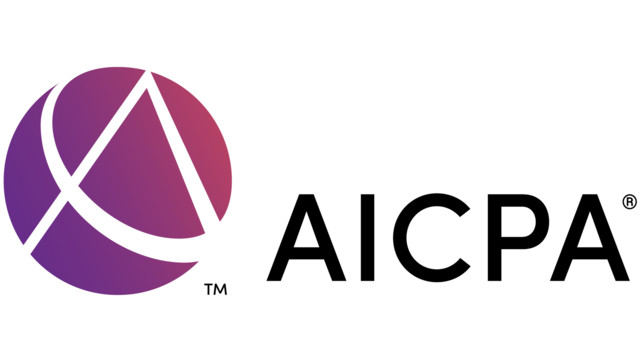Accounting
AICPA News: March 2020
AICPA News is a roundup of recent announcements by the association.
Mar. 03, 2020

AICPA News is a roundup of recent announcements by the association.
AICPA, Tax Stakeholder Orgs Provide Recs on Taxpayer First Act
The American Institute of CPAs (AICPA) has participated in a group of 10 stakeholder organizations to provide the Internal Revenue Service (IRS) with recommendations as it prepares reports to Congress as mandated by the Taxpayer First Act (TFA).
“The IRS…needs to adopt a visionary approach looking beyond immediate constraints to develop long-term goals…The IRS should provide flexibility in its design to ensure the agency will continue to evolve,” the group said.
The recommendations outlined in this letter better empower practitioners to help their customers and, ultimately, help all taxpayers.The following organizations participated in providing the recommendations to the IRS:
- alliantgroup, LP
- American Institute of CPAs (AICPA)
- H&R Block
- Latino Tax Professionals Association
- National Association of Enrolled Agents (NAEA)
- National Association of Tax Professionals (NATP)
- National Conference of CPA Practitioners (NCCPAP)
- National Society of Tax Professionals (NSTP)
- Padgett Business Services
- Prosperity Now
AICPA Now Accepting Applicants to George Willie Scholarship Program
The AICPA is now accepting applications for the Private Companies Practice Section (PCPS) George Willie Ethnically Diverse Student Scholarship and Internship program.
The George Willie program provides a scholarship and internship to five minority accounting students who intend to pursue their CPA licensure. The AICPA provides a scholarship of up to $20,000 to each student to assist with their final academic year tuition, while five PCPS member firms each sponsor a student for an internship during the 2021 tax season (January to April).
The participating member firms are:
- Aronson LLC, Rockville, MD
- Boyum Barenscheer, Bloomington, MN
- OnTarget CPA, Indianapolis, IN
- Reynolds, Bone & Griesbeck PLC, Memphis, TN
- Sensiba San Filippo, Pleasanton, CA
This program was created in honor of George Willie, CPA, CGMA, a former chair of AICPA’s PCPS Executive Committee and the AICPA Minority Initiatives Committee. During his more than 35-year career, Willie has promoted the benefits of a career in accounting to students and young professionals in pursuit of the CPA license.
The Willie program is open to Black or African American; Hispanic or Latino; Native American or Alaska Native; Native Hawaiian or Pacific Islander; Multiethnic; or Asian American students pursuing an undergraduate or graduate degree in accounting or an accounting-related major with at least a 3.0 GPA. Applicants also must plan to sit for the CPA exam. Full eligibility requirements and selection criteria are available online.
Students interesting in the program can visit aicpa.org/pcpsscholarship for more information. Applications are currently open, with a deadline of April 15, 2020.
AICPA & NASBA Partner with South African CA Board
The South African Institute of Chartered Accountants (SAICA), the AICPA and the National Association of State Boards of Accountancy (NASBA) have signed a mutual recognition agreement (MRA) that came into effect on January 15, 2020. The agreement provides a pathway for South African Chartered Accountants (CAs[SA]) and U.S. Certified Public Accountants (CPA) to have their credentials recognized in both countries.
According to its terms, the MRA will:
- Facilitate the reciprocal recognition of the South African CA(SA) designation and the Certified Public Accountant (CPA) license.
- Increase the mobility of professionals to facilitate growth of the profession in both countries.
The NASBA/AICPA International Qualifications Appraisal Board (IQAB) worked with SAICA to establish this pathway for those holding the CPA license and CA(SA) designation. The IQAB surveys and assesses professional practice standards and qualification in specified countries and recommends the feasibility of recognition of credentialed non-U.S. professionals.
How do members qualify?
A holder of the CA(SA) credential may be eligible to obtain the CPA license via this agreement if he or she is a member in good standing of SAICA and meets the additional criteria set out in each of the applicable U.S. jurisdiction’s various state laws and regulations as they apply to:
- Education
- Examinations
- Experience and
- Continuing Professional Education
A CPA may be eligible to obtain the CA(SA) credential provided he or she is a licensed CPA in good standing with a State Board of Accountancy, meets the CPE requirements of their Board of Accountancy and meets additional criteria set out under the following sections of the agreement:
- Education
- Examination
- Experience and
- CPE criteria
Full details on the eligibility requirements for CPAs can be found NASBA’s website or by emailing iqex@nasba.org. Full details on the eligibility requirements for CAs(SA) can be found on SAICA’s website or by emailing Adri Kleinhans at adrik@saica.co.za.
An ARSC Priority: Converge with International Standards and Align with GAAS
The AICPA Accounting and Review Services Committee (ARSC) has issued Statement on Standards for Accounting and Review Services No. 25, Materiality in a Review of Financial Statements and Adverse Conclusions. It will amend AR-C sections 60, 70, 80 and 90 in AICPA Professional Standards.
SSARS No. 25 converges AR-C section 90, Review of Financial Statements, with International Standard for Review Engagements 2400 (Revised), Engagements to Review Historical Financial Statements.
The ARSC believes it’s important for the SSARSs literature to be as closely converged with ISRE 2400 (Revised) as possible. This will facilitate the accountant’s ability to perform and report on engagements in accordance with both sets of standards and diminish confusion regarding the level of assurance obtained in accordance with either set of standards.
SSARS No. 25 becomes effective for engagements performed in accordance with SSARSs on financial statements for periods ending on or after December 15, 2021. Early implementation is permitted.
